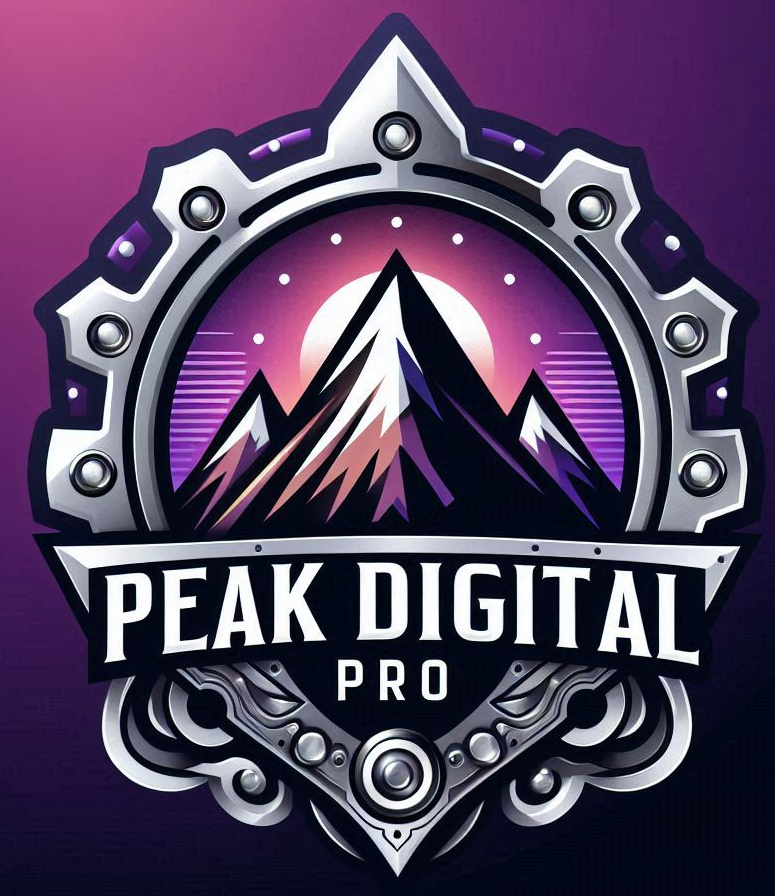Understanding Organic Search: Key Concepts Explained
Organic search shapes how millions discover brands, answers, and products every single day. Most people do not even realize that the first organic search result grabs nearly 29 percent of all clicks on Google. Paid ads might look flashy but it is the unpaid organic results that win people’s trust and drive the real action. This silent heavyweight decides who gets seen online and who fades into the background.
Table of Contents
Quick Summary
| Takeaway | Explanation |
|---|---|
| Prioritize high-quality content | Create comprehensive and relevant content to improve search rankings. It’s essential for addressing user intent effectively. |
| Focus on technical SEO performance | Optimize website speed, mobile responsiveness, and navigation to enhance user experience and rankings. Technical attributes are critical to search success. |
| Maintain user engagement | Improve metrics like bounce rate and session duration to signal content value to search engines. Engaging content keeps visitors on the site longer. |
| Establish digital authority | Produce informative content that demonstrates expertise and relevance to earn trust and improve visibility in search results. Authority boosts organic rankings. |
| Utilize organic search as a strategy | Invest in SEO for sustainable traffic growth and reduced marketing costs. Organic search provides lasting visibility without ongoing ad expenses. |
What is Organic Search and How Does it Work?
Organic search represents the natural, unpaid search results displayed by search engines like Google in response to a user’s query. Unlike paid advertisements, these results are determined by complex algorithms that evaluate website relevance, authority, and user experience. Understanding organic search means recognizing how search engines determine which content appears most prominently in search results.
The Search Engine Ranking Process
Search engines employ sophisticated algorithms to analyze and rank web pages. The process involves multiple critical components:
- Crawling : Search engine bots systematically explore web pages, following links and discovering new content
- Indexing : Relevant pages are cataloged and stored in massive digital databases
- Ranking : Websites are evaluated based on hundreds of factors including content quality, site performance, and user engagement
For businesses, this means creating high-quality, relevant content that genuinely answers user questions. Our guide on SEO strategies provides deeper insights into optimizing for these complex ranking systems.
Importance of Organic Search
Organic search results are critically important because they represent unbiased, earned visibility . Users inherently trust organic listings more than paid advertisements. According to research from Sistrix , the first organic search result receives approximately 28.6% of all clicks, demonstrating the substantial impact of achieving top rankings.

Businesses that master organic search strategies can generate consistent, high-quality website traffic without continuous advertising expenditure.
The table below summarizes and contrasts paid search and organic search, two distinct approaches mentioned in the article, to clarify their main differences and benefits.
| Aspect | Paid Search | Organic Search |
|---|---|---|
| Cost | Requires ongoing ad spend | No direct costs per click |
| Trust Level | Often perceived as less trusted | Seen as credible and unbiased |
| Visibility Duration | Ends when spend stops | Sustainable over time |
| Ranking Mechanism | Based on bidding system | Determined by algorithms |
| Traffic Type | Immediate, but can drop quickly | Consistent, long-term traffic |
| User Click-Through Rate | Lower than top organic results | First organic gets ~29% clicks |
| This makes organic search a powerful long-term digital marketing approach that builds sustainable online visibility and credibility. |
The Importance of Organic Search for Your Business
Organic search serves as a critical digital marketing channel that enables businesses to connect with potential customers precisely when they are seeking relevant information, products, or services. Strategic organic search visibility transforms how companies attract, engage, and convert online audiences without relying on expensive advertising platforms.
Cost-Effective Customer Acquisition
Unlike paid advertising models that require continuous financial investment, organic search provides a sustainable approach to generating website traffic. Businesses investing in high-quality content and search engine optimization create long-term digital assets that continue attracting potential customers.
Key advantages of organic search include:
- Reduced marketing expenses : No per-click or impression costs
- Sustained visibility : Content continues generating traffic over extended periods
- Higher trust levels : Users perceive organic results as more credible than advertisements
Learn more about local SEO strategies that can help businesses maximize their organic search potential and connect with nearby customers.
Building Digital Authority and Credibility
Search engines reward websites that demonstrate expertise, authoritativeness, and relevance. According to research from Lamar University , businesses with strong online visibility can significantly enhance their digital reputation by consistently producing high-quality, informative content that matches user search intent.
Successful organic search strategies go beyond keywords. They require a comprehensive approach that includes technical website optimization, content quality, user experience, and continuous performance monitoring. By establishing themselves as trusted information sources, businesses can transform organic search from a marketing tactic into a powerful brand-building mechanism.
Key Factors Influencing Organic Search Rankings
Organic search rankings are determined by a complex interplay of technical, content-related, and user experience factors. Search engines utilize sophisticated algorithms to evaluate websites and determine their relevance, authority, and overall quality for specific search queries.
The following table organizes the main technical and content-related factors that influence organic search rankings as described in the article, helping readers quickly identify what matters most for SEO success.
| Factor | Description |
|---|---|
| Content Quality & Relevance | Offers accurate, comprehensive, and user-focused information |
| Depth of Information | Provides detailed coverage of relevant topics |
| Originality | Features unique perspectives and insights |
| Technical Performance | Ensures fast load speed, mobile responsiveness, and secure connections |
| Site Architecture | Maintains clean structure and intuitive navigation |
| User Experience | Delivers ease of use and engagement for visitors |
| User Engagement Metrics | Measures like bounce rate and session duration |
Content Quality and Relevance
Content remains the foundational element of organic search success. Search engines prioritize websites that provide comprehensive, accurate, and genuinely helpful information to users. High-quality content goes beyond simple keyword matching and focuses on addressing user intent comprehensively.
Key content quality indicators include:
- Depth of information : Comprehensive coverage of topics
- Originality : Unique perspectives and insights
- Relevance : Direct alignment with user search intent
- Readability : Clear, engaging writing that maintains user interest
Learn more about improving website rankings to understand how content strategy impacts search performance.
Technical Performance and User Experience
Search engines consider technical website attributes as critical ranking factors. According to research from the University of Nebraska-Lincoln , websites must demonstrate technical excellence to achieve higher organic rankings.
Critical technical factors include website speed, mobile responsiveness, secure connections (HTTPS), clean site architecture, and intuitive navigation. Search engines analyze these elements to determine user experience quality, recognizing that technically superior websites provide better interaction opportunities for visitors.
Successful organic search optimization requires a holistic approach that balances exceptional content, technical performance, and genuine value for users. Businesses that understand and implement these interconnected ranking factors can significantly improve their online visibility and attract more targeted organic traffic.

Understanding the Role of Content in Organic Search
Content serves as the fundamental communication channel between websites and search engines, representing the primary mechanism through which digital platforms demonstrate relevance, expertise, and value to potential users. Effective content strategy transcends simple keyword placement, requiring a nuanced approach that genuinely addresses user needs and search intent.
Creating Authoritative and Valuable Content
Search engines prioritize content that provides comprehensive, accurate, and actionable information. Authoritative content distinguishes itself through depth of analysis, clarity of presentation, and direct alignment with user questions. This means developing materials that not only answer immediate queries but also provide meaningful context and insights.
Key characteristics of high-performance content include:
- Comprehensive coverage : Addressing topics from multiple perspectives
- Expertise demonstration : Showcasing deep understanding of subject matter
- Practical utility : Offering actionable insights and solutions
- User engagement : Creating content that encourages further exploration
Master the art of content writing for SEO to transform your digital communication strategy.
Content Relevance and Search Intent
According to Google’s official documentation on creating helpful content , search engines increasingly focus on understanding the underlying intent behind user queries. This means content must go beyond surface-level information and provide genuine value.
Successful content strategies recognize that organic search is not about matching exact keywords but about delivering precise, meaningful answers to user questions. Websites that consistently produce high-quality, user-focused content position themselves as authoritative sources, earning both user trust and improved search engine rankings.
The most effective content combines technical precision with human-centered storytelling, transforming complex information into accessible, engaging narratives that serve both user needs and search engine algorithms.
The Impact of User Experience on Organic Search Results
User experience represents a critical determinant of organic search performance, with search engines increasingly prioritizing websites that deliver seamless, intuitive, and valuable interactions for visitors. Modern search algorithms analyze multiple user experience signals to determine a website’s relevance and ranking potential.
Core User Experience Metrics
Search engines evaluate websites through comprehensive user interaction data, examining how visitors engage with digital content. Behavioral metrics provide insights into a site’s overall quality and user satisfaction, directly influencing organic search rankings.
Key user experience indicators include:
- Page load speed : Rapid content delivery
- Mobile responsiveness : Consistent performance across devices
- Navigation clarity : Intuitive site structure
- Content accessibility : Easy information retrieval
- Interaction quality : Smooth, engaging user journey
Explore local SEO strategies to understand how user experience impacts regional search visibility.
Technical and Engagement Signals
According to research from the Interaction Design Foundation , search engines use sophisticated algorithms to measure user engagement and site performance. These technical assessments go beyond traditional ranking factors, analyzing nuanced interactions that indicate content quality and relevance.
Websites that prioritize user experience demonstrate higher engagement rates, lower bounce rates, and more extended site visits. These behavioral signals communicate to search engines that the content is valuable, trustworthy, and worthy of prominent ranking positions.
Successful organic search optimization requires a holistic approach that balances technical performance, content quality, and exceptional user experience. Businesses must view their websites as dynamic, interactive platforms designed to solve user problems and deliver seamless digital experiences.
Ready to Win at Organic Search in the AI Era?
Are you worried about your website getting lost as AI changes the way search engines work? This article uncovered why traditional SEO tactics are no longer enough. If you find keeping up with technical SEO, content quality, and user experience stressful, you’re not alone. Businesses in fields like e-commerce, healthcare, finance, travel, and online education are already feeling the impact as organic search rankings shift in favor of AI-powered results and new interfaces like Google’s AI Overviews.

It’s time to take action and future-proof your digital presence. At Peak Digital Pro
, our AEO Method aligns your brand with the latest search expectations and puts you in front of ready-to-act customers. Explore how our SEO strategy insights
and answer engine solutions protect your visibility and authority, even as search evolves. Visit Peak Digital Pro
today to see how you can become the trusted result AI engines choose. Take the next step before your competitors do.
aligns your brand with the latest search expectations and puts you in front of ready-to-act customers. Explore how our SEO strategy insights
and answer engine solutions protect your visibility and authority, even as search evolves. Visit Peak Digital Pro
today to see how you can become the trusted result AI engines choose. Take the next step before your competitors do.
Frequently Asked Questions
What is organic search?
Organic search refers to the unpaid listings displayed by search engines in response to a user’s query, determined by algorithms that assess website relevance and quality.
How do search engines rank webpages?
Search engines rank webpages through a complex process involving crawling, indexing, and evaluating content quality, site performance, and user engagement metrics.
Why is organic search important for businesses?
Organic search is crucial for businesses as it provides unbiased visibility, builds trust with users, and can generate sustainable traffic without ongoing advertising costs.
What factors influence organic search rankings?
Key factors include content quality and relevance, technical performance of the website, and overall user experience, all contributing to a site’s visibility in search results.
Recommended
- What Is a Search Query? Guide for U.S. Business Owners 2025
- A Deep Dive into Generative AI Engine Optimization for Local Businesses: Actionable Strategies for AI-Driven Visibility
- SEO for Service Businesses in 2025: Colorado and US Guide
- Best On-Page SEO Techniques for US Business Owners in 2025
- How to Leverage SEO for Growth in 2025: Proven Strategies







